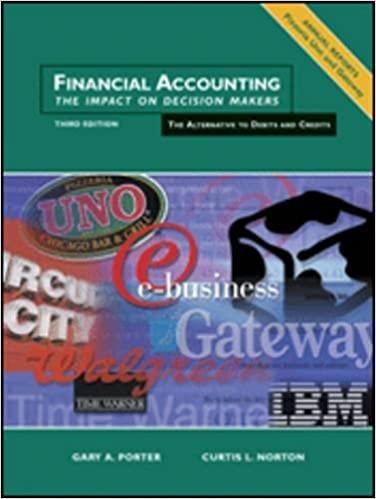Judith Chemical Company produces a variety of products. Traditionally, the company has established base pricing for its products as 200% of the full manufacturing cost.
Judith Chemical Company produces a variety of products. Traditionally, the company has established base pricing for its products as 200% of the full manufacturing cost. However, one productThingamabobshas no direct competition and is in such great demand that the company has been able to successfully sell it for $350 even though the pricing formula just described would suggest that it sell for less than that figure. Recognizing the success of Thingamabobs in the marketplace, the companys VP of Sales wants to promote it much more aggressively so that the company can phase out its less successful products in hopes of increasing overall company profits.
The companys existing cost system assigns its $600,000 in overhead to products using a single company-wide rate equal to 6 times direct labor costs. Unit prime costs (i.e., direct materials and direct labor) for Thingamabobs (which sells for $350) include $50 for direct materials and $8 for direct labor
Continuing with the information for Lundy, now consider what would happen if an activity-based cost system were in place. Assume that the $600,000 in total overhead has been assigned to four homogenous cost pools (with resulting pool rates) as follows:
| Cost Pool | Costs in Pool |
| Cost Driver and Rate |
| Materials handling | $200,000 |
| $300 per pounds of materials |
| Waste disposal | 155,000 |
| $2,000 per disposal |
| Quality control | 80,000 |
| $800 per inspection |
| Utilities | 165,000 |
| $15 per machine hour |
| Total | $600,000 |
|
|
The entire Thingamabobs product line involves 500 pounds of materials, necessitates 20 disposals, requires 10 inspections, and uses 1,000 machine hours.
Determine the overhead cost assignment in total to the Thingamabobs product line
Assume that there are 500 units of Thingamabobs currently produced and sold. Given your answer to the preceding part and the prime costs provided in the original data, (a) what full product cost per unit is suggested by the ABC system and (b) what is the resulting profitability per unit given the current selling price of $350?
Suggested full product cost per unit:
Suggested profitability per unit:
Step by Step Solution
There are 3 Steps involved in it
Step: 1

See step-by-step solutions with expert insights and AI powered tools for academic success
Step: 2

Step: 3

Ace Your Homework with AI
Get the answers you need in no time with our AI-driven, step-by-step assistance
Get Started


